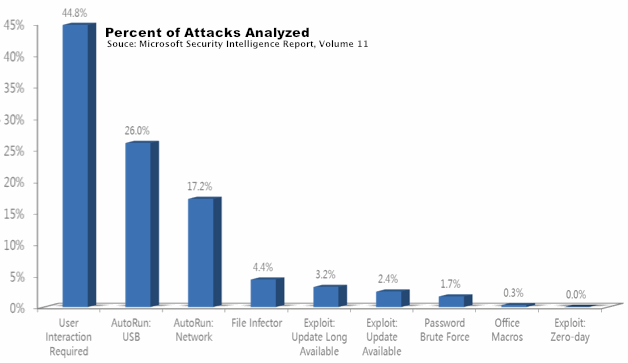On Tuesday, in addition to the monthly “Patch Tuesday” security updates for Windows and Office platforms, Microsoft released the eleventh volume of its Security Intelligence Report.
The report, which gives a deep look into security trends, has some interesting data when it comes to malware propagation.
Less than one-percent of the exploits observed in the first-half of 2011 were targeting Zero-Day vulnerabilities Microsoft said. In fact, most of the attacks centered on previously patched issues, and leveraged Phishing to spread the malicious payloads. According to the data, Phishing accounted for 44.8-percent of the malware spread during the reporting period.

Sticking to Phishing, social networks and their users were a favorite target, as the socially engineered attacks originated on such sites, reaching a peak of nearly 85-percent in April. This trend hammers home the point made by the software giant, when they noted that the Web is the main source of malicious infections and malware propagation.
The vulnerabilities attacked the most include, two against Adobe Flash, which were patched before exploits were being circulated online, as well as issues within Java. Brute-force attacks and AutoRun attacks were the other trending methods during the first-half of 2011.
Microsoft’s point isn’t that Zero-Days should be ignored, but that criminals will not reinvent the wheel, if they know that low hanging fruit exists and that users will do almost anything. In the cases monitored for the latest SIR, the majority were preventable as long as the targeted host was consistently patched.















